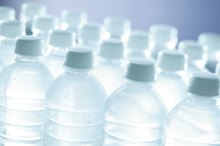Does Gatorade Give You Energy?
By definition, the human body generates energy by burning calories. Since Gatorade has calories, it can provide energy. However, if you are not engaging in physical activity or an active lifestyle, those calories instead get converted and stored as fat, potentially leading to excess weight gain.
Nutrition Facts
The nutrition information for Gatorade is based on an 8-oz 134. serving. An 8-oz. serving of Gatorade contains 50 calories including 14 g sugar. Gatorade sports drink is sold in bottles of varying size. A 32-oz. bottle of Gatorade has four servings, amounting to 200 calories and 56 g of sugar. This amount is equal to 14 tsp. sugar.
- The nutrition information for Gatorade is based on an 8-oz 1. bottle of Gatorade has four servings, amounting to 200 calories and 56 g of sugar.
Energy
Are Gatorade and Powerade Healthy for Athletes?
Learn More
Your body needs calories to function on a very basic level. The lungs and heart need energy to expand and contract, and the brain needs calories to process information. You generate energy for these body processes by consuming calories in your diet. Gatorade has sugar which your body uses for energy, and water which is necessary to keep everything working properly.
- Your body needs calories to function on a very basic level.
- Gatorade has sugar which your body uses for energy, and water which is necessary to keep everything working properly.
Water
Gatorade also has water, which your body needs to keep everything working properly. Hydration is just as important to athletic performance as sugar or electrolytes. The best way to stay hydrated is to drink plenty of water. Plain water is easy for your body to process, and inexpensive if you draw it from the tap.
- Gatorade also has water, which your body needs to keep everything working properly.
- Plain water is easy for your body to process, and inexpensive if you draw it from the tap.
Electrolytes
Structure of Carbohydrates in Gatorade
Learn More
Electrolytes do not provide energy, however they do support important physiological processes important for movement, namely the nervous and cardiac systems. Gatorade contains small amounts of potassium and sodium, the two main electrolytes found in the human body. Both of these are lost in perspiration and can be replenished by drinking an electrolyte-replacement beverage like Gatorade.
Variety
Gatorade is sold around the world in many varieties. Gatorade sports drinks are sold in two major series: the G Series, and Gatorade Natural 4. Each series contains a distinct line of drinks. The G Series includes drinks targeted towards pre-game warm-up, game time, and post-game recovery. Gatorade Natural contains two varieties of drinks marketed for its general "thirst quenching" properties. Gatorade also sells a line of food products under the G Series Pro line 4.
Related Articles
References
- Gatorade.com; Original G Nutrition Information
- Research and Gatorade Programs: The Idea that Launched an Industry; Kays, J., PHillips-Hann, A.; 2003
- Gatorade.com; Gatorade Natural Product Information
- Gatorade.com; The G Series Product Information
- Potera C. Diet and nutrition: The artificial food dye blues. Environ Health Perspect. 2010;118(10). doi:10.1289/ehp.118-a428
- Color Additives Questions and Answers for Consumers. Food and Drug Administration. Updated January 4, 2018.
- Malik VS, Popkin BM, Bray GA, Després JP, Hu FB. Sugar-sweetened beverages, obesity, type 2 diabetes mellitus, and cardiovascular disease risk. Circulation. 2010;121(11):1356-1364. doi:10.1161/CIRCULATIONAHA.109.876185
- Cordrey K, Keim SA, Milanaik R, Adesman A. Adolescent consumption of sports drinks. Pediatrics. 2018;141(6). doi:10.1542/peds.2017-2784
- Pearlman M, Obert J, Casey L. The association between artificial sweeteners and obesity. Curr Gastroenterol Rep. 2017;19(12). doi:10.1007/s11894-017-0602-9
- Health Effects of Sugary Drinks. Boston Public Health Commission.
- Sports Drinks. Harvard T.H. Chan School of Public Health.
- Cordrey K, Keim SA, Milanaik R, Adesman A. Adolescent consumption of sports drinks. Pediatrics. 2018;141(6). doi:10.1542/peds.2017-2784
- Field A, Sonneville K, Falbe J, Flint A, Haines J, Rosner B, Camargo C. Association of sports drinks with weight gain among adolescents and young adults. Obesity, 22(10), pp.2238-2243. doi:10.1002/oby.20845
- Story M, Klein L. Consumption of Sports Drinks by Children and Adolescents. An Issue Brief. Healthy Eating Research. Published June 2012.
- Trasande L, Shaffer R, Sathyanarayana S. Food additives and child health. Pediatrics. 2018;142(2):e20181408. doi:10.1542/peds.2018-1408
Writer Bio
Janelle Commins started writing professionally in 2007. She has written for the "UCLA Total Wellness" magazine on nutrition and fitness topics that are of interest to young adults. Her work has also appeared in various online publications. She holds a Bachelor of Science in nutrition science from University of California, Davis, and a Master of Science in public health from University of California, Los Angeles.









